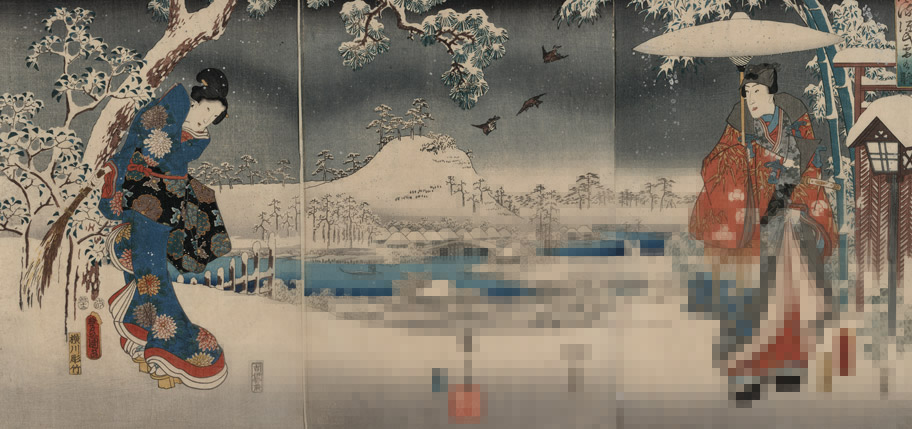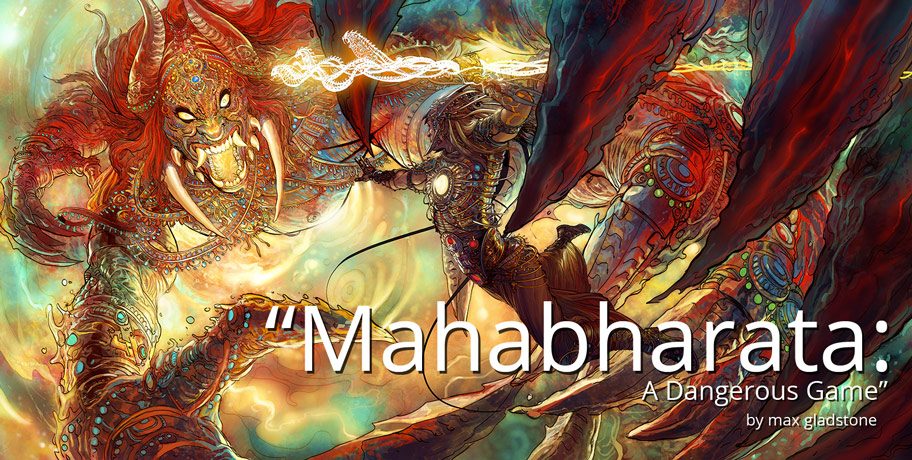A young man of surpassing beauty who rises to a political and romantic career of power and renown mixed with disappointment, betrayal, and demonic possession. Also, he glows.
A minor noblewoman has a tragic love affair with an emperor. She dies, leaving behind her child — a young man of surpassing beauty who rises to a political and romantic career of power and renown mixed with disappointment, betrayal, and demonic possession. Also, he glows.
Welcome to the Tale of Genji, the Japanese story of romance, ghosts, poetry, and politics that has a good claim of being the world’s first novel. To clarify: Genji is a work of prose, not epic poetry, and written in the vernacular rather than the local courtly language (which, in early 11th century Heian Japan, would have been Chinese). It’s also, as far as we can tell, original, without folkloric or legendary precursor. The author, Lady Murusaki Shikibu, wove her hero and his, um, exploits out of whole cloth. And, while many other works deal with mythological high society—gods and demons and so forth—Murusaki seems to have cared a great deal about representing (idealistically but still) her social reality. Genji Monogatari is a work of beauty and passion and (to modern sensibilities) occasional utter weirdness, in which twenty chapters of plot turn on the accidental glimpse of one character by another through a paper screen, astrological prohibitions on travel are used to justify spending the night at a prospective lover’s house, titles take the place of names, violence is anathema, and a twenty-mile exile is worse than death. Read More »
Mahabharata: A Dangerous Game
My enthusiasm and love for these characters and this story will serve for the purpose at hand: encouraging you, dear reader, to immerse yourself in the Mahabharata.
The last two iterations of this column have played it safe. I’ve read Journey to the West in two languages and studied it from a variety of angles, and Romance of the Three Kingdoms, too though to a lesser extent. I could continue in this vein—the next logical essay would be on Outlaws of the Marsh / The Water Margin, China’s great Robin Hood novel and one of Mao Zedong’s favorite books, followed probably by Dream of the Red Chamber for more domestic source material. (Or Jin Ping Mei, if we want to get the sexy-fun-times element in play…)
But while all these stories are great, I’m not as passionate about them as I am about the story I want to discuss now. The problem is, I’m nowhere near as cut out to write this essay as I was the first two—I don’t know the source language, Sanskrit, and I haven’t spent as much time studying the work’s cultural context. (I’m not ignorant, I just don’t have a four year degree, six years of language study, and three years in-country.) There’s also much more chance I’ll do inadvertent harm writing this essay, since the text I’m about to discuss is a live, and lived, religious document in addition to one of the greatest adventure stories, romances, war stories, and apocalyptic tales of all time.
That said, maybe my enthusiasm and love for these characters and this story will serve for the purpose at hand: encouraging you, dear reader, to immerse yourself in the Mahabharata. And I hope that will be worth whatever unintentional harm I do. Read More »


